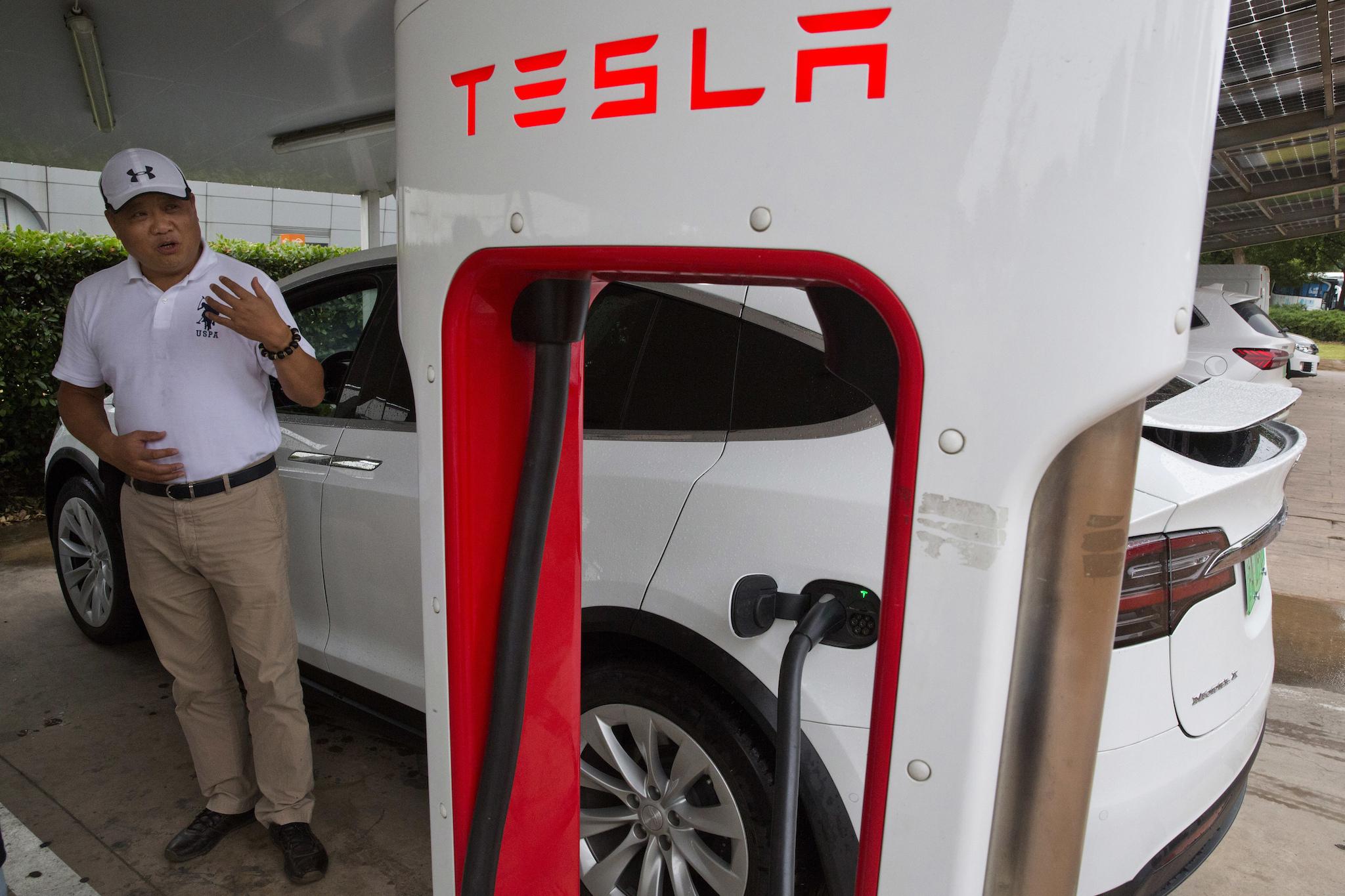Electric cars in China tell the government where their drivers are at all times, investigation finds
Authorities claim that information is only used to keep citizens' safe

Your support helps us to tell the story
From reproductive rights to climate change to Big Tech, The Independent is on the ground when the story is developing. Whether it's investigating the financials of Elon Musk's pro-Trump PAC or producing our latest documentary, 'The A Word', which shines a light on the American women fighting for reproductive rights, we know how important it is to parse out the facts from the messaging.
At such a critical moment in US history, we need reporters on the ground. Your donation allows us to keep sending journalists to speak to both sides of the story.
The Independent is trusted by Americans across the entire political spectrum. And unlike many other quality news outlets, we choose not to lock Americans out of our reporting and analysis with paywalls. We believe quality journalism should be available to everyone, paid for by those who can afford it.
Your support makes all the difference.Cars in China are watching their drivers and reporting where they are to the government.
Authorities claim that the data is only used to ensure that the roads, cars and drivers are safe. But privacy experts fear the data could be used for more invasive forms of surveillance.
Hundreds of car manufacturers of electric vehicles – including Tesla, as well as more traditional companies like Volkswagen, BMW and Ford – transmit dozens of different kinds of information to the government. The information is sent without the driver or owner of the car even knowing it.
Car companies say the data is being sent because of local regulations, which force alternative fuel vehicles to give up data about where they are. China has called upon all electric vehicle manufacturers in China to make the same kind of reports — potentially adding to the rich kit of surveillance tools available to the Chinese government as President Xi Jinping steps up the use of technology to track citizens.
The data then provides a vast map of every person in their car, which can be individually watched as they drive around the streets.
Chinese officials say the data is used for analytics to improve public safety, facilitate industrial development and infrastructure planning, and to prevent fraud in subsidy programmes. But other countries where the same cars are sold don't require that data to be tracked.
And critics say the information collected in China is beyond what is needed to meet the country's stated goals. It could be used not only to undermine foreign carmakers' competitive position, but also for surveillance — particularly in China, where there are few protections on personal privacy. Under the leadership of Xi Jinping, China has unleashed a war on dissent, marshalling big data and artificial intelligence to create a more perfect kind of policing, capable of predicting and eliminating perceived threats to the stability of the ruling Communist Party.
There is also concern about the precedent these rules set for sharing data from next-generation connected cars, which may soon transmit even more personal information.
"You're learning a lot about people's day-to-day activities and that becomes part of what I call ubiquitous surveillance, where pretty much everything that you do is being recorded and saved and potentially can be used in order to affect your life and your freedom," said Michael Chertoff, who served as Secretary of the U.S. Department of Homeland Security under President George W. Bush and recently wrote a book called "Exploding Data."
Chertoff said global automakers should be asking themselves tough questions. "If what you're doing is giving a government of a more authoritarian country the tools to have massive surveillance, I think then companies have to ask themselves, 'Is this really something we want to do in terms of our corporate values, even if it means otherwise forgoing that market?"'
According to national specifications published in 2016, electric vehicles in China transmit data from the car's sensors back to the manufacturer. From there, automakers send at least 61 data points, including location and details about battery and engine function to local centers like the one Ding oversees in Shanghai.
Data also flows to a national monitoring center for new energy vehicles run by the Beijing Institute of Technology, which pulls information from more than 1.1 million vehicles across the country, according to the National Big Data Alliance of New Energy Vehicles. The national monitoring center declined to respond to questions.
Those numbers are about to get much bigger. Though electric vehicle sales accounted for just 2.6 percent of the total last year, policymakers have said they'd like new energy vehicles to account for 20 percent of total sales by 2025. Starting next year, all automakers in China must meet production minimums for new energy vehicles, part of Beijing's aggressive effort to reduce dependence on foreign energy sources and place itself at the forefront of a growing global industry.
The Chinese government has shown its interest in tracking vehicles.
"The government wants to know what people are up to at all times and react in the quickest way possible," said Maya Wang, a senior China researcher for Human Rights Watch. "There is zero protection against state surveillance."
"Tracking vehicles is one of the main focuses of their mass surveillance," she added.
Additional reporting by Associated Press
Join our commenting forum
Join thought-provoking conversations, follow other Independent readers and see their replies
Comments